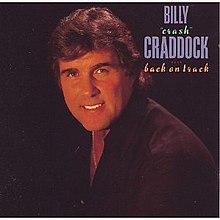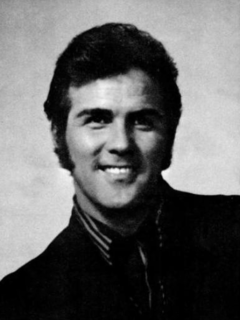
Whitney Elizabeth Houston was an American singer and actress. She was cited as the most awarded female artist of all time by Guinness World Records and remains one of the best-selling music artists of all time with 200 million records sold worldwide. She released seven studio albums and two soundtrack albums, all of which have been certified diamond, multi-platinum, platinum, or gold by the Recording Industry Association of America (RIAA). Houston's crossover appeal on the popular music charts—as well as her prominence on MTV, starting with her video for "How Will I Know"—influenced several African-American women artists who followed in her footsteps.
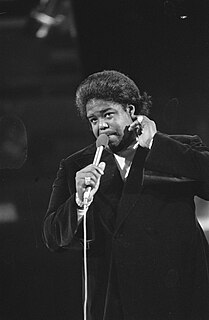
Barry Eugene Carter, better known by his stage name Barry White, was an American singer-songwriter, musician, record producer and composer.

LaDonna Adrian Gaines, widely known by her stage name based on her married name Donna Summer, was an American singer, songwriter and actress. She gained prominence during the disco era of the late 1970s. A five-time Grammy Award winner, Summer was the first artist to have three consecutive double albums reach number one on the United States Billboard 200 chart and charted four number-one singles in the US within a 12-month period. Summer has reportedly sold over 100 million records worldwide, making her one of the world's best-selling artists of all time. She also charted two number-one singles on the Hot R&B/Hip-Hop Songs chart in the US and a number-one single in the United Kingdom.

Leonard Albert Kravitz is an American singer, songwriter, actor, and record producer. His "retro" style incorporates elements of rock, blues, soul, R&B, funk, jazz, reggae, hard rock, psychedelic, pop, folk, and ballads. In addition to singing lead and backing vocals, Kravitz often plays all of the instruments himself when recording.
Robert John "Mutt" Lange is a South African record producer and songwriter. He is known for his work in the studio and innovations in multitrack recording and producing many of rock's most famous albums. He has produced albums for, or otherwise worked with, artists such as Céline Dion, AC/DC, Britney Spears, Def Leppard, The Boomtown Rats, Foreigner, Michael Bolton, The Cars, Bryan Adams, Huey Lewis and the News, Billy Ocean, The Corrs, Maroon 5, Lady Gaga, Nickelback, and Muse. He also wrote and produced songs with his then-wife, Canadian singer Shania Twain. Her 1997 album Come On Over, which he produced, is the best-selling country music album, the best-selling studio album by a female act, the best-selling album of the 1990s, and the 9th best-selling album in the United States.

Minnie Julia Riperton-Rudolph, known professionally as Minnie Riperton, was an American singer-songwriter best known for her 1975 single "Lovin' You" and her four-octave coloratura soprano. She is also widely known for her use of the whistle register and has been referred to by the media as the "Queen of the whistle register". Born in 1947, Riperton grew up in Chicago's Bronzeville neighborhood on the South Side. As a child, she studied music, drama and dance at Chicago's Lincoln Center. In her teen years, she sang lead vocals for the Chicago-based girl group the Gems. Her early affiliation with the legendary Chicago-based Chess Records afforded her the opportunity to sing backup for various established artists such as Etta James, Fontella Bass, Ramsey Lewis, Bo Diddley, Chuck Berry and Muddy Waters. While at Chess, Riperton also sang lead for the experimental rock/soul group Rotary Connection, from 1967 to 1971.

Yvette Marie Stevens, better known by her stage name Chaka Khan, is an American musician, singer and songwriter. Her career has spanned nearly five decades, beginning in the 1970s as the lead vocalist of the funk band Rufus. Khan received public attention for her vocals and image. Known as the Queen of Funk, Khan was the first R&B artist to have a crossover hit featuring a rapper, with "I Feel for You" in 1984. Khan has won ten Grammys and has sold an estimated 70 million records worldwide.

The Beach Boys Love You is the 21st studio album by American rock band the Beach Boys, released on April 11, 1977. Originally planned as a Brian Wilson solo outing named Brian Loves You, the album is almost entirely written and performed by Wilson and was penned during a process of mental and drug rehabilitation for him. Synthesizers are featured heavily in its arrangements, while the lyrics tend to be autobiographic or conversational. It was initially received with a sharp divide between fans and critics, peaking at number 53 on US record charts. One single was issued from the album: "Honkin' Down the Highway" backed with "Solar System".

"Can't Help Falling in Love" is a 1961 song recorded by American singer Elvis Presley for the album Blue Hawaii (1961). It was written by Hugo Peretti, Luigi Creatore, and George David Weiss and published by Gladys Music, Inc.. The song was initially written for a woman as "Can't Help Falling in Love with Him", which explains the first and third line ending on "in" and "sin" rather than words rhyming with "you".

I Brought You My Bullets, You Brought Me Your Love is the debut studio album by American rock band My Chemical Romance, released on July 23, 2002 by Eyeball Records. Produced by Thursday vocalist Geoff Rickly, it was recorded at Nada Recording Studio in New Windsor, New York, in May 2002.

"I'm Gonna Make You Love Me" is a soul song most popularly released as a joint single performed by Diana Ross & the Supremes and The Temptations for the Motown label. This version peaked for two weeks at #2 on the Hot 100 in the United States and at #3 on the UK Singles Chart in January 1969.

"I Will Always Love You" is a song originally written and recorded in 1973 by American singer-songwriter Dolly Parton. Her country version of the track was released in 1974 as a single and was written as a farewell to her one-time partner and mentor of seven years, Porter Wagoner, following Parton's decision to pursue a solo career.

Taylor Dayne, is an American singer, songwriter, and actress. She rose to fame in 1987 after her debut single "Tell It to My Heart" reached number one across several international music charts. Dayne achieved three additional number one singles, including "Love Will Lead You Back", "Prove Your Love", and "I'll Always Love You".
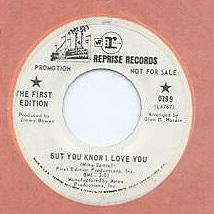
"But You Know I Love You" is a song written by Mike Settle, which was a 1969 pop hit for Kenny Rogers and The First Edition, a group that included Settle and Kenny Rogers. The song also became a major country hit by Bill Anderson in 1969. In 1981, a cover version of "But You Know I Love You" by singer Dolly Parton topped the country singles charts.

Pierre David Guetta is a French DJ, record producer and songwriter. He has sold over nine million albums and thirty million singles worldwide. In 2011, Guetta was voted as the number one DJ in the DJ Mag Top 100 DJs poll. In 2013, Billboard crowned "When Love Takes Over" as the number one dance-pop collaboration of all time.
"Make You Feel My Love" is a song written by Bob Dylan from his album Time Out of Mind (1997). It was first released commercially by Billy Joel, under the title "To Make You Feel My Love", before Dylan's version appeared later that same year. It has since been covered by numerous performers and has proved to be a commercial success for singers such as Adele, Garth Brooks, Shane Filan, Bryan Ferry, Kelly Clarkson and Ane Brun. Two covers of the song were featured on the soundtrack of the 1998 film Hope Floats. Dylan eventually released the song as a single.
"I Loves You, Porgy" is a duet from the opera Porgy and Bess with music by George Gershwin and lyrics by Ira Gershwin. It was published in 1935.
I Love You, I Love U, or I Luv U may refer to:
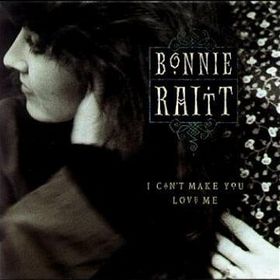
"I Can't Make You Love Me" is a song written by Mike Reid and Allen Shamblin and recorded by American singer Bonnie Raitt for her eleventh studio album Luck of the Draw (1991). Released as the album's third single in 1991, "I Can't Make You Love Me" became one of Raitt's most successful singles, reaching the top-20 on the Billboard Hot 100 chart and the top-10 on the Adult Contemporary.
"I Love How You Love Me" is a song written by Barry Mann and Larry Kolber. It was a 1961 Top Five hit for the pop girl group the Paris Sisters, which inaugurated a string of elaborately produced classic hits by Phil Spector. Bobby Vinton had a Top Ten hit in 1968 with a cover version. The song has been recorded by many other artists over the years.
